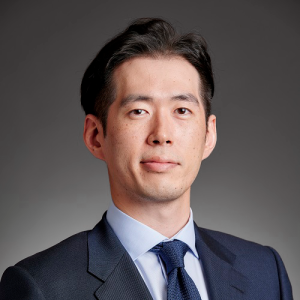Exploring the areas of virtual reality, augmented reality, mixed reality and artificial intelligence, Mizzou scholars are working across disciplines to enter the metaverse.
Oct. 27, 2022
A first-year nurse checks on a series of patients and goes about his rounds. With nothing serious to report, he heads down the hallway, sneakers squeaking.
Suddenly, a monitor alarm erupts and another caregiver shouts for help. A patient who was fine moments ago is now unresponsive — with dangerously low blood pressure and a stuttering heart rate. The nurse panics.
Should I call a code, or should I rush to the charge nurse? Where are my colleagues? Why are there so many people around suddenly? I can feel my chest tightening and my ears burning …
This is just one example of an escalating situation many nurses role-play en route to a degree — or as part of their professional training. But such exercises require a cast of simulation actors with memorized performances — not to mention dedicated time and space to act out the scenario.
Knoo Lee, a post-doctorate fellow in the Sinclair School of Nursing, is working on a virtual reality (VR) solution to traditional time-space-resource constraints that will supplement and reinforce real-life instruction.
Lee has teamed up with Fang Wang, associate teaching professor of engineering and information technology, to develop a VR training program that challenges nurses with unpredictable emergent circumstances to test their knowledge and nerve.
Welcome to Mizzou in the metaverse. Like Lee and Wang, thousands of Tigers across campus are learning practical skills by working in augmented, virtual and mixed realities.
“When nurses enter the workforce, we are seeing a significant portion leave within the first year,” Knoo said. “For some it’s because they are not prepared for these types of escalating situations, and they feel powerless. This virtual training program will serve to increase confidence and better prepare prospective nurses.”
To support the technical side, Wang’s team in the College of Engineering’s Collaborative Research Environments for Extended Reality Lab (CREXR) specializes in the creation of metaverse experiences that immerse humans into digital surroundings. The metaverse — an ever-closer future of cyberspace in which users are connected in virtual-, augmented- and mixed-reality environments — is the frontier of these technologies.
Wang’s lab recently developed a VR program for training students to operate equipment in an engineering laboratory. The team also collaborated with the MU Museum of Art and Archeology to create a virtual museum for the Missouri 2021 Bicentennial celebration. The program allows users to view paintings by artists from the Show-Me State and was recently released on the Oculus Store (like an app store but for VR).
“The nursing VR project has been uniquely interdisciplinary because, when we are building the environment and the characters, there are details about the emergency room and the equipment that we, as engineers, might not fully understand. Our partnership with nursing is what makes it accurate and immersive,” Wang said. “What makes VR, and eventually the metaverse, so exciting is that it makes the physical world accessible to almost everyone — regardless of location. It is especially powerful for these types of trainings.”
Read on about a few of the myriad Mizzou projects that are pushing technical boundaries, expanding classroom concepts and changing the way humans work together across space and time.
This story was originally published on Oct. 25, 2022 by Show Me Mizzou.
